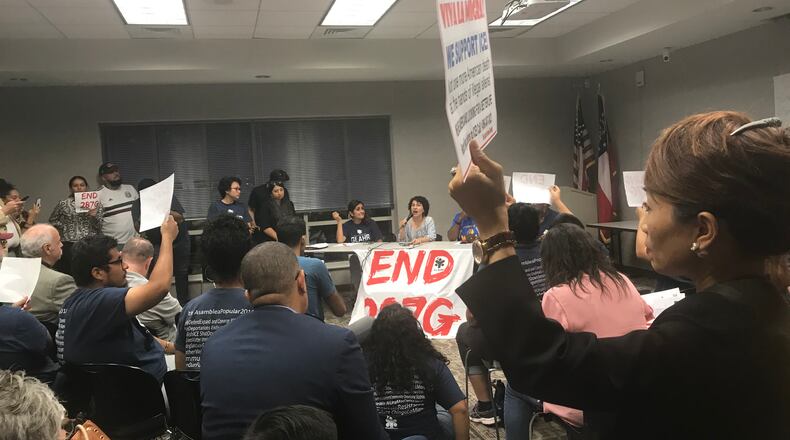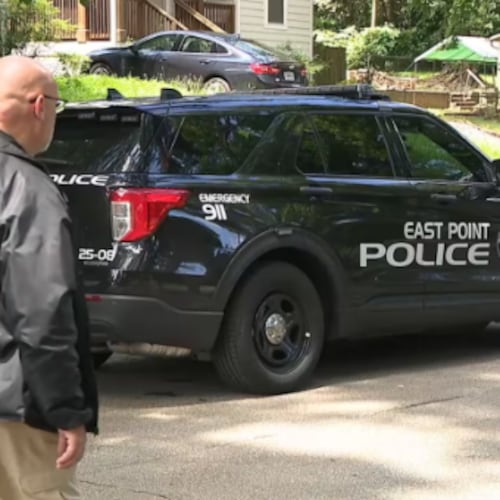People shouted.
They sniped at each other, both quietly and not so much.
They waved signs and muttered under their breath and laughed out loud and ignored the previously discussed rules of engagement.
But given the divisive nature of the topic — and the events that transpired in the days prior — the panel discussion that several immigrant advocacy groups hosted Wednesday night in Gwinnett County went about as well as can be expected these days.
The Georgia Latino Alliance for Human Rights, Project South and several other civil rights groups put together the event to discuss the impact of the federal immigration enforcement program known as 287(g). The program allows participating local law enforcement agencies — such as the Gwinnett County Sheriff's Office and five others in Georgia — to check the immigration status of detainees and hold them for federal authorities when appropriate.
Supporters of the 287(g) program believe it helps keep communities safer, reduces crime and saves taxpayer money. Opponents like the groups who organized the forum say it leads to racial profiling, tears families apart and disproportionately affects undocumented immigrants arrested for nonviolent crimes like driving without a license.
The already heated topic took on another extra layer of tension earlier in the week after a local Tea Party leader distributed an email that appeared to encourage supporters of the 287(g) program to attend the forum and bring weapons with them.
Asked about his email on Tuesday, United Tea Party of Georgia leader David Hancock was quick to say he did not intend to suggest his supporters should feel the need to be armed for the meeting and that he was not expecting or encouraging violence.
He followed up Wednesday with a post on the Tea Party website asking his supporters to "be civil, police and respectful of those that you disagree with."
Hancock was present — and seemingly unarmed — for at least part of the crowded forum held Wednesday night at the Collins Hill branch of the Gwinnett County Public Library.
Many other 287(g) supporters were there as well. None appeared to be armed with anything but handheld signs.
Law enforcement officers — some uniformed, some not — helped keep the relative peace during the tense question-and-answer session that followed the organizers’ opening statements.
“There was a robust discussion and some differences of opinion,” said Azadeh Shahshahani, the advocacy and legal director for Project South. “But I think folks learned things.”
About the Author
Keep Reading
The Latest
Featured



